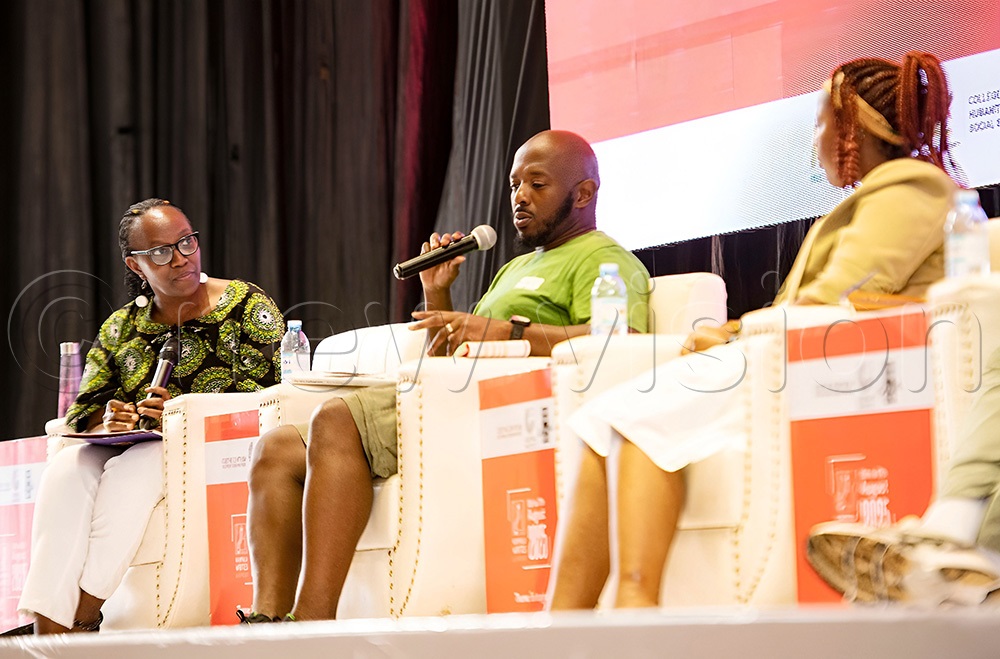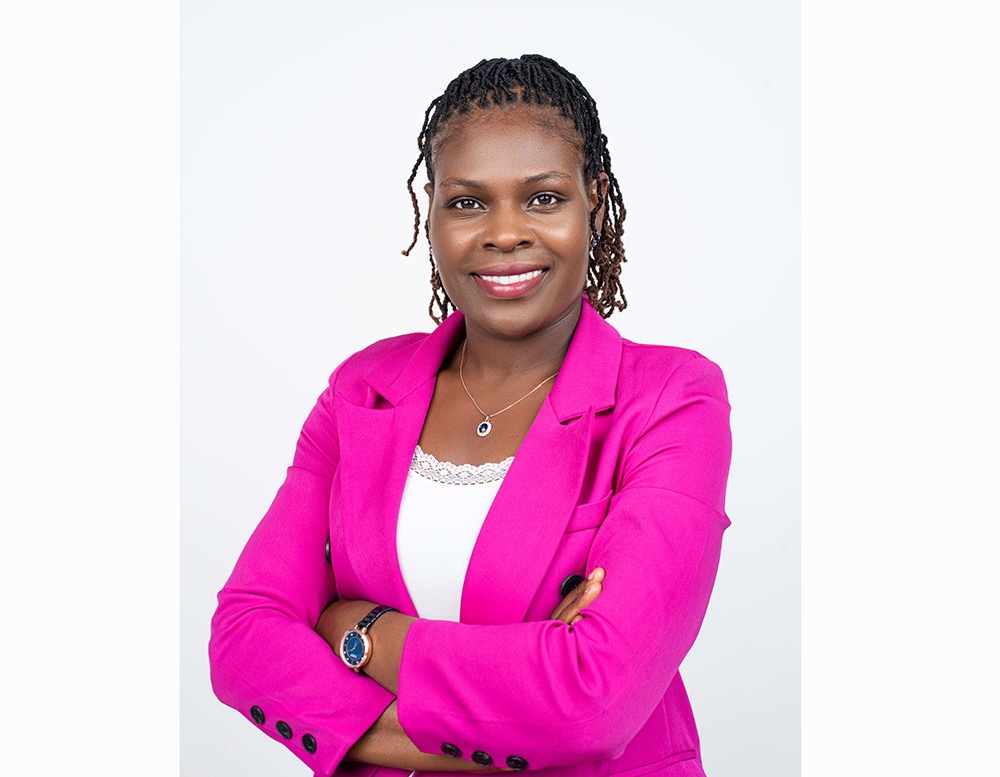Kampala Writes LitFest: Carving its space among Africa’s literary festivals
Curated by Goretti Kyomuhendo, hosted by Goethe-Zentrum (Goethe-Institut), and supported by partners including the British Council and Makerere University, the festival distinguished itself through its thoughtful organisation and vibrant energy.
A panel discussion during the 2025 Kampala Writes LitFest held at Makerere University over the weekend. (Photo by Kalungi Kabuye)
_________________
By Mercy Kirui
Uganda, famously called the ‘Pearl of Africa’, offered me an inspiring welcome during my second visit. The warmth of its people set the perfect tone for the second edition of Kampala Writes LitFest, a gathering that blended literature, community, and cultural exchange in remarkable ways.
Curated by Goretti Kyomuhendo, hosted by Goethe-Zentrum (Goethe-Institut), and supported by partners including the British Council and Makerere University, the festival distinguished itself through its thoughtful organisation and vibrant energy.
Like many other African literary festivals, Kampala Writes LitFest featured engaging panel sessions, conversations with celebrated authors, and rich cultural programming. Yet, given that it was only in its second edition, it is already making strong strides toward the stature of more established events such as Nairobi’s NBO LitFest, the African Book Fair, the Macondo Literary Festival, and Nigeria’s Ake Festival.
Jackie Asiimwe, left, moderates a panel discussion during the 2025 Kampala Writes LitFest held at Makerere University over the weekend. (Photo by Kalungi Kabuye)
One key difference is the role of institutions behind it. Across Africa, most literary festivals are typically organised by publishers, booksellers, or independent collectives. In Kampala, however, the Goethe-Zentrum (Goethe-Institut) led the efforts with notable backing from the African Writers Trust and Tubaze Online Books. The involvement of the British High Commission, which hosted the opening reception at the residence of H.E. Lisa Chesney, highlighted the extent to which international partners continue to anchor and amplify literary events across the continent.
The festival’s theme, Belonging, ran like a golden thread through every session. Discussions approached the idea from deeply personal, historical, and societal perspectives, underscoring just how layered and complex the word can be. Particularly powerful were the contributions of authors who have spent much of their lives abroad. Their reflections on turning strangeness into home, navigating exile and identity, and overcoming challenges to become celebrated literary voices offered audiences both vulnerability and inspiration.
Highlights included conversations with Uganda’s finest literary talents—Jennifer Nansubuga Makumbi, Nick Makoha, Iryn Tushabe, and Ghanaian-born Nii Ayikwei Parkes, who has found a second home in Uganda. Their insights on creativity, migration, and identity reminded us of the vital role African literature plays in shaping both individual and collective futures.

Mercy Kirui is a publishing professional and a literary agent based in Nairobi, Kenya. She has participated in major global publishing fellowships and chaired panels at the London and Frankfurt Book Fairs
Another striking feature of the LitFest was its institutional inclusivity. In addition to providing the venue, Makerere University actively participated throughout the program. Importantly, literature students were invited to attend, ensuring the festival reached the very generation poised to carry forward Africa’s storytelling traditions.
In many ways, Kampala Writes LitFest has quickly carved out its space within Africa’s growing literary calendar. It may still be young, but its blend of cultural support, institutional involvement, and genuine inclusivity sets it apart. More than an event, it was a celebration of African voices and a reminder that literature remains one of the most powerful tools for shaping identity, community, and the future.
For me, it was a chance to listen, learn, and connect—not just with Uganda, but with the wider story of African literature in motion.
Thank you, Kampala! See you again in 2026.
_________
(The writer is a publishing professional and a literary agent based in Nairobi, Kenya. She has participated in major global publishing fellowships and chaired panels at the London and Frankfurt Book Fairs. Also a prolific author of more than 20 books, she attended the 2025 Kampala Writes LitFest, which took place at the Yusuf Lule Auditorium last weekend. These are her thoughts and recollections.)